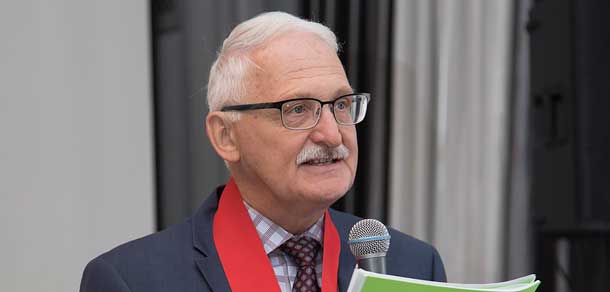I have a hunch that many if not most engineering and geoscience professionals identify with a specific discipline, often labelling their professional practice with the designation of their undergraduate degree. The definition of disciplines matters to individual professionals, to clients, to academic institutions and to professional regulators.
APEGS has the legislated responsibility for regulating the engineering and geoscience professions and must continually be aware of emerging disciplines and shifts in older disciplines. Feature articles in this edition of the Edge introduce readers to some examples of the ways that our professions are evolving with the emergence of new disciplines.
Our professions are dynamic. The number of distinct engineering and geoscience disciplines practised in the province continually grows and the way each discipline is practised also changes in response to the needs of society and our clients. There are many forces in play that lead to proliferation of disciplines and to evolution of older disciplines. The agriculture sector was once the domain of agricultural engineers: As that sector evolved and adopted new technologies, the demand increased for other engineering disciplines and the generalist discipline of agricultural engineering has been crowded out, partially replaced by biosystems engineering.
Emerging technologies relevant to health care spurred the evolution of biomedical engineering. Environmental engineering and environmental geoscience disciplines emerged from an increasing public focus on environmental stewardship, the increasing complexity and interdisciplinary nature of infrastructure projects and changes in regulations. Computer and software engineering were born out of the digital computing revolution.
Engineering and geoscience disciplines differ around the world. Disciplines that are “new to Saskatchewan” may emerge due to the global mobility of engineering and geoscience companies and to the mobility of engineering and geoscience professionals. Over half of APEGS members have a principal residence outside the province and an increasing number of new applicants hold degrees from outside Saskatchewan and Canada.
Academic institutions sometimes create distinct new disciplines, many times beginning at the postgraduate level, either in response to changing needs of practising professionals for greater specialization or in recognition of the opportunity to create practical solutions and tools out of basic science discoveries. APEGS has a legislated responsibility to ensure that any person who presents themselves in Saskatchewan as “engineer” or “geoscientist,” including those aligned with an emerging discipline, is registered with APEGS. Academic institutions work collaboratively with APEGS to ensure that graduates of new programs will be eligible for registration as a professional engineer or geoscientist.
Ours are dynamic professions and each of us may find our interests and competencies changing substantially over our careers. Standard engineering or geoscience discipline labels from our undergraduate days may not sufficiently describe the breadth and limitations of our current scope of practice which could be a subset of, or a combination of, recognized discipline definitions. Each of us will protect ourselves and our profession by maintaining a unique and current program of Continuing Professional Development and by reporting CPD activities on an annual basis.
TOP: photo credit
